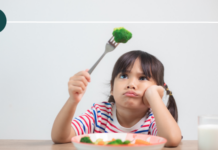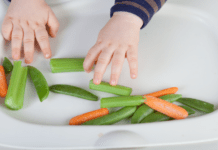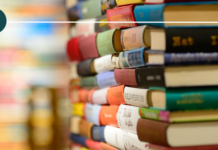
Along with my family and my dog, I love language the most. On the outside, it’s a bunch of letters shuffled together. On the warm, gooey inside it’s a high-tech vehicle for self-expression. It’s one of those things we all share regardless of our differences. The desire to communicate is universally understood. Yet our very role in its transmission allows for complete diversity. Say what you want – literally – but that’s mind blowing stuff.
Language is fascinating – in size, structure, and development. We’ve put men on the moon but we still aren’t quite sure how babies go from ‘goo-goo gaa-gaa’ to ‘hi I’m a big kid now.’ Basic language development occurs seemingly without formal instruction. Think about it – by the time most children head to pre-K/indergarten, they can use language. No other subject matter enters the psyche in quite the same way. Just imagine if we could absorb other disciplines with such ease – history without ever reading a history book? Sign me up.
We’ve been signing with baby since six months of age with marked success. Now that she’s an official toddler at 18-months old, we’re starting to work on our words. It’s coming along but we’re not quite there yet. Often it seems like my LO knows what she wants to tell me – she simply lacks the language to do so. This is mildly to wildly frustrating – for both of us!
So instead of enrolling in a litany of kid classes this summer, I’m going to engage in a little bit of old fashioned home schooling. I’m calling it, English As Your First Language: Please Learn It And Stop Whining. My motives are selfish; with more words comes more talking. With more talking hopefully comes less whining.
This may backfire.
Nevertheless, I forge on. I’ve adopted a few wordy habits in the hopes of nurturing this strange and wonderful phase we’re in. Perhaps you too will find them useful in helping your toddler learn more about this little thing we call language.
Make conversation, a lot of it. I once had a boyfriend who, when asked by a friend if he didn’t talk much replied, pointing to me, “she talks enough for the both of us.” Joke’s on him – I took it as a compliment. I’m loquacious and I love it. In fact, if my daughter inherits my love of words I’ll consider my work here to be done.
For now, I put my motor mouth to good use by blabbing to my baby everywhere – in the car, on walks, at the store. Talking to my child is quite possibly the easiest and most cost effective (read=FREE) way to educate her. That’s not to say I’m a genius OR I never shut up. I’m simply pointing out the obvious – names of objects, numbers, colors, basic scientific principles, etc., – and stimulating conversation. By constantly reminding myself that everything in her world is brand new, my world blows wide open. Suddenly, there are infinite conversations in a speck of dust.
Be specific. About 20 times a day I catch myself instructing my toddler “ to put this in there” – which works for adults who understand that a demonstrative pronoun is essentially a nonsense word used to refer to something specific. But for a toddler with limited language? Not so much. Sure I may be holding the book and pointing to the shelf at the time, but specificity and repetition will build her vocabulary much faster than this, that, and the other thing. Context counts, but it can’t be everything. So I continually challenge myself to be specific. Ask her nicely to hand me the “Drano” she found “under the sink” while I was in the bathroom for two seconds. Or to please place all of the “tampons” back in the “box” and “close the drawer” before mommy “sighs loudly and exaggerates wildly” AKA loses her mind. Which reminds me…
Be kind. When I give my special snowflake a directive, I’m not asking. I’m telling. (And let’s face it, most of our conversation at this point involves me telling her to undo something she just did. However, I digress.) But that doesn’t mean I forgo my manners just because I’m the boss. By using please and thank you and an even tone, I hope to impart on her that it doesn’t just matter what you say, but how you say it. We’re never too old or too young to be kind.
Go big. According to the Internet, children learn, on average, ten to fifteen new word meanings each day.1 Each day! So don’t be stingy with the variety. In other words? Try not to scrimp on the superfluous stock of ostentatious expressions in our vernacular. Bombard your youth with a barrage of utterances of all silhouettes and magnitudes. For example, rather than “please no,” I tell my toddler that I’m zipping the bag closed “to thwart her efforts to empty its contents.” It may seem silly to use big or obscure words with a child. But again, context. As she sees me do and say the same things over again, so her understanding of communication grows. And as with most experiences at this stage, they only know what we expose them to. So go big and then go home and talk about it, a lot. Extra credit parent bonus: how delightful it is to hear a toddler attempt to say big, weird words like authentic, applesauce, matryoshka, or octopus? Spoiler alert: it’s hilarious.
I’m not a scientist; heck I’m not even employed outside of the home so maybe you shouldn’t listen to me. What I do know is that I’m having a blast witnessing my child develop this thing called language. And she seems to be doing something right because she’s saying new words every day. Whether her abilities stem from nature or nurture, I know not.
Either way, I’m just happy to have someone to talk to.












